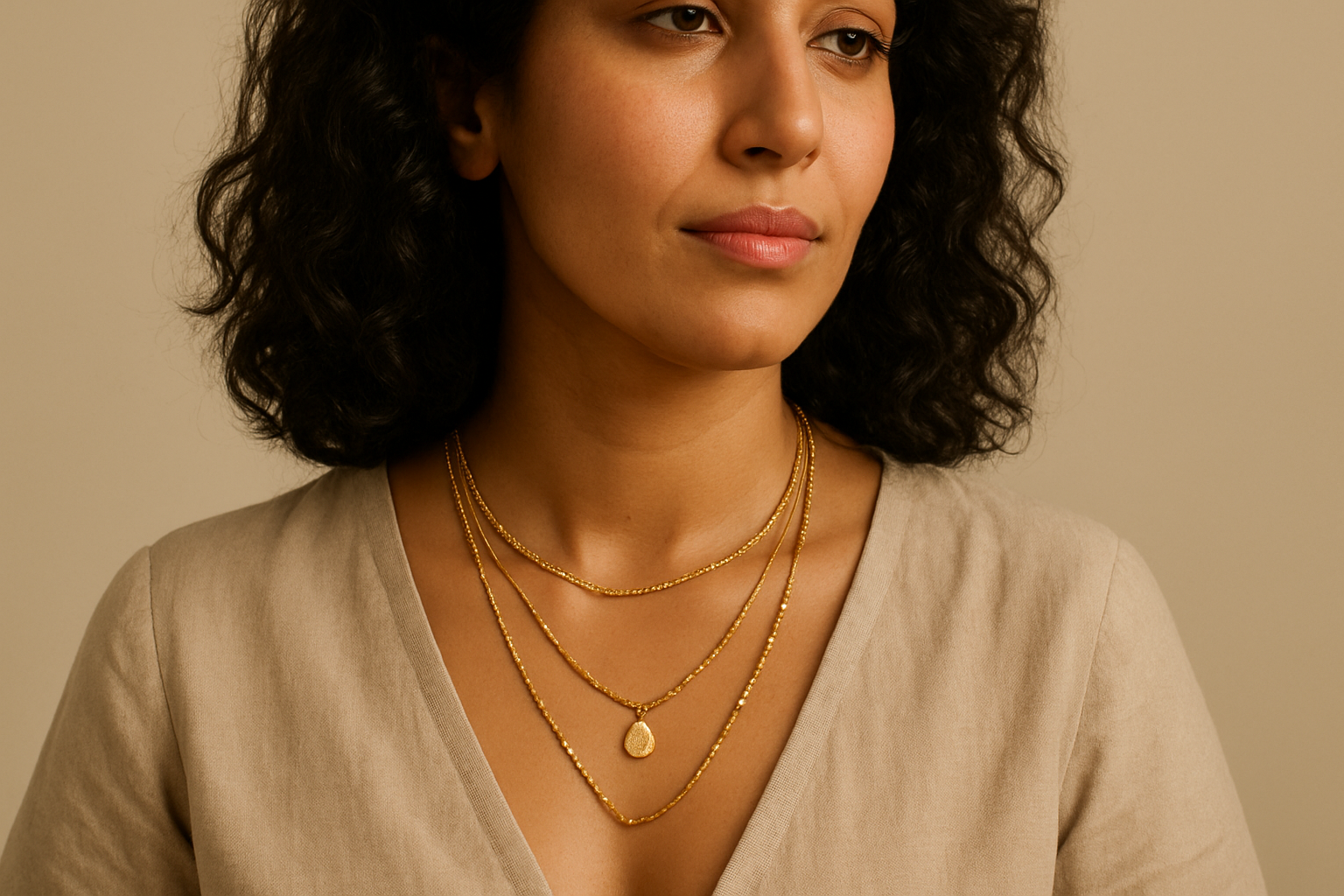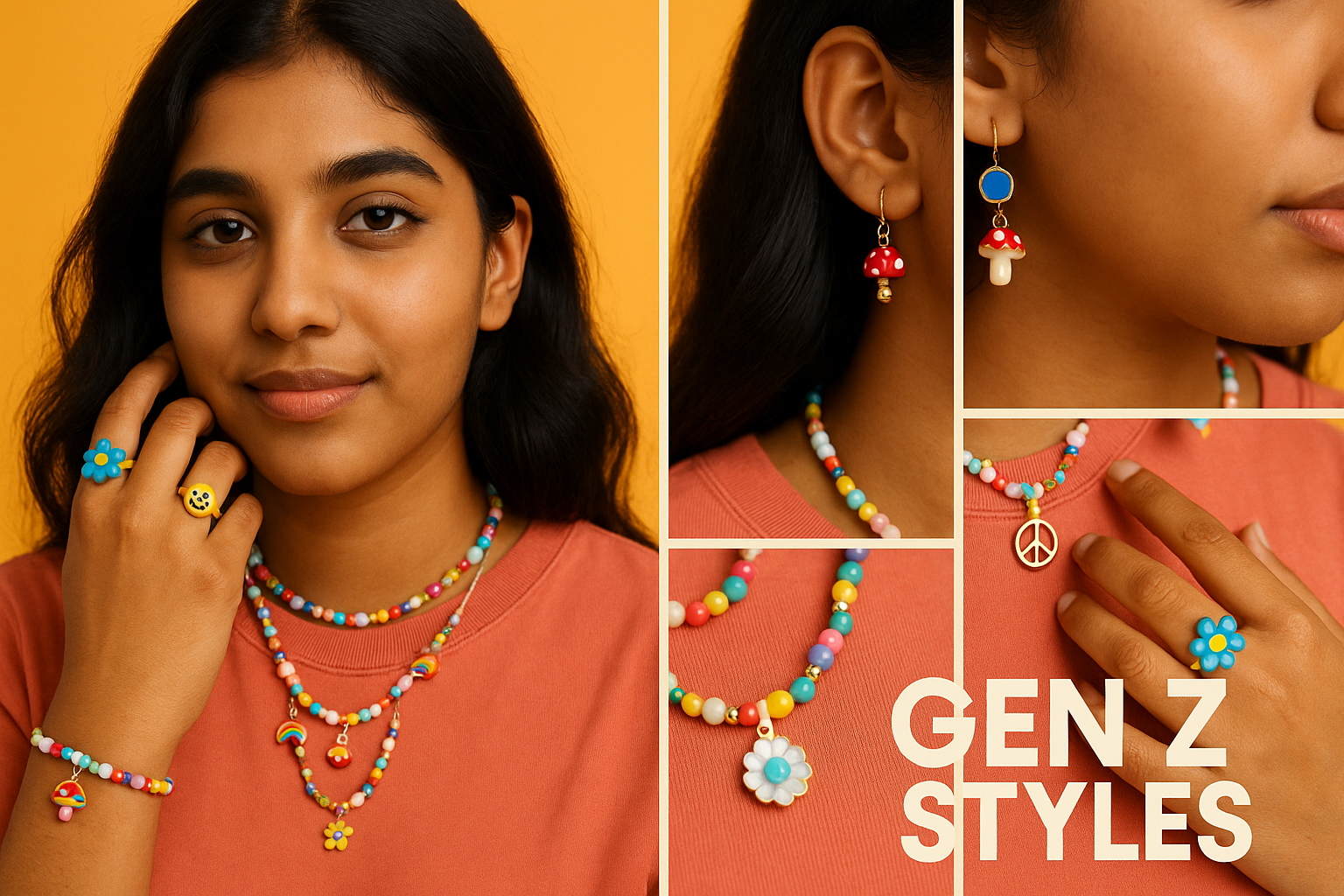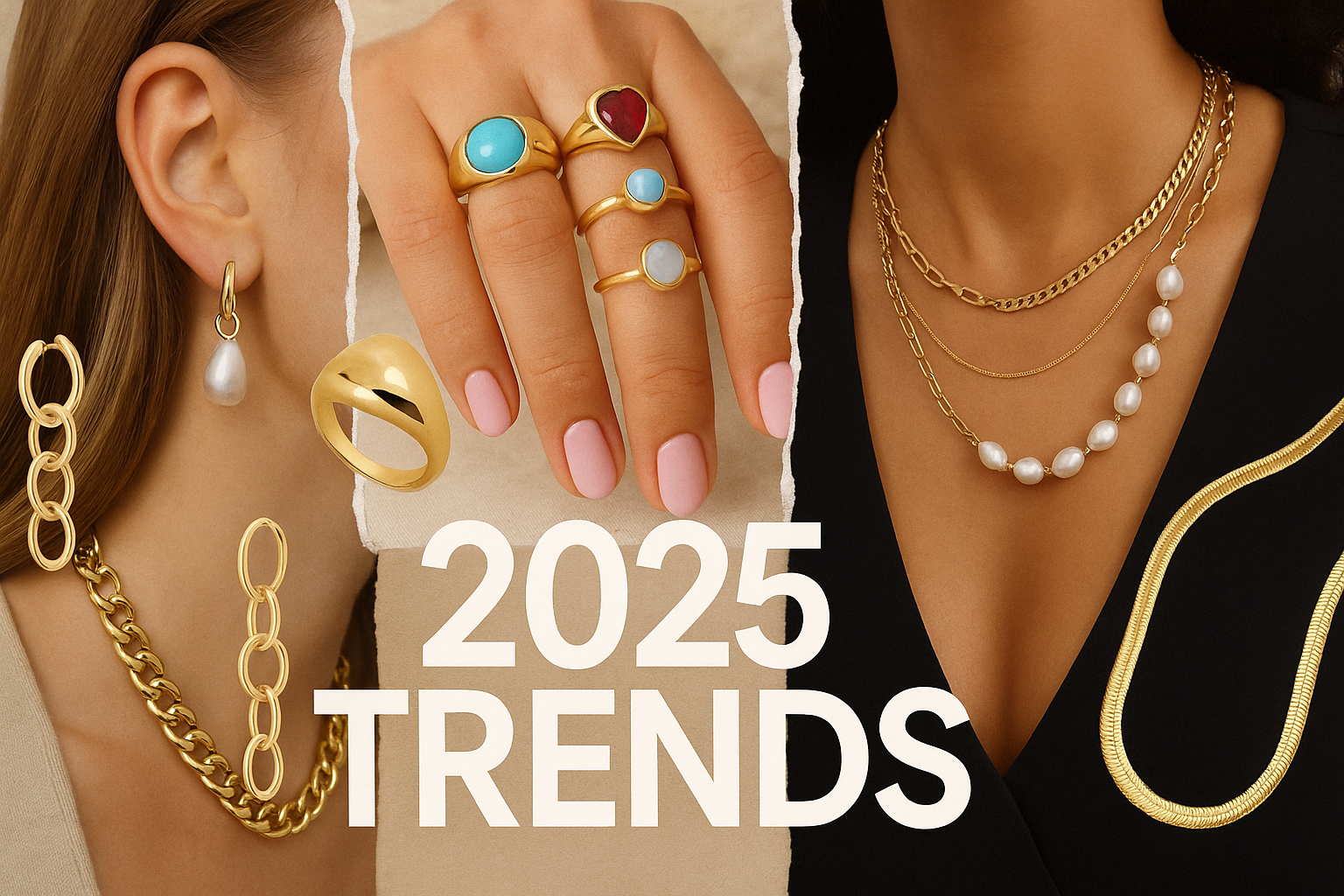Key Facts
- •Separate chain weights and textures to reduce tangles.
- •Give 1–2 inches between tiers for clarity.
- •Spacer clasps and offsetting clasps reduce friction.
- •Repeat metals at least twice to keep stacks intentional.
The base–mid–long formula
Pick one necklace for each tier; vary length, weight, and texture so each has space.
Think of layering like building a song: you need bass, melody, and harmony. For necklaces, that means:
**Base (short choker):** 14–16 in.
**Mid (pendant):** 16–18 in.
**Long:** 20–24 in.
**Ready-made stacks**
- **Everyday:** slim choker + pendant + rope chain
- **Dressy:** pearl choker + diamond pendant + long curb
- **Minimal:** fine paperclip + bar pendant + chain lariat
**Do:** Start with your anchor piece (usually a pendant) and build around it.
Lengths that always work (with necklines)
Match chain lengths to necklines—give 1–2 inches between tiers for clarity.
**Crew neck:** 16 + 18 + 20 in
**V-neck:** 14 + 16 + 22 in
**Button-down:** 16 + 18 in under collar, long 22+ in over
**Turtleneck:** 18 + 20 + 24 in
**Pro Tip:** Use extenders to adjust by 1–2 inches and avoid clashes.
Anti-tangle techniques and hardware
Reduce friction and rotation with different weights, clasp positioning, and spacers.
- Use spacer clasps or layer locks to keep chains parallel
- Offset clasps at **2** and **10 o’clock**
- Don’t stack two identical delicate chains—they cling
**Caution:** Avoid layering chains with sharp edges—they’ll saw at each other.
Mixing metals & textures
Repeating each metal at least twice keeps mixed stacks intentional, not random.
Gold + silver can play nice. Add steel or blackened accents for edge. Textures like curb, rope, and paperclip add visual rhythm.
**Do:** Repeat each metal at least twice (e.g., gold pendant + gold studs).
Pendants, charms, and balance
One statement pendant per stack; keep other tiers lighter for balance.
- Avoid “pendant collisions” by staggering lengths
- Pick bail sizes that slide freely
- One big pendant + two light chains works best
Skin, hair, and comfort considerations
Flat chains snag less; smooth edges near sensitive skin; hair + collar tips.
- Flat snake chains glide without pulling hair
- Sensitive skin? Stick to sterling silver or gold
- Avoid heavy pieces in summer heat—they stick
**Caution:** Static in winter makes fine chains cling—rub with a dryer sheet before wearing.
Care & storage for layered sets
Quick wipe after wear, separate pouches, clasping method to avoid knots.
- Wipe with soft cloth
- Store clasped, in separate pouches
- See a pro if kinks form—don’t yank them out
Three visual templates to copy
Plug-and-play stacks for daily wear—photos/diagrams recommended.
- **Minimal Gold:** fine choker + bar pendant + lariat
- **Mixed Metals Everyday:** silver paperclip + gold pendant + steel chain
- **Pendant + Pearl Play:** pearl choker + gemstone pendant + rope
Chain Length & Layering Guide
A compact grid for tiers, lengths, chain types, necklines, and notes.
| Tier | Typical length (in) | Chain type(s) | Works with necklines | Notes |
|------|----------------------|----------------|----------------------|--------------|
| Base | 14–16 | Choker, snake | Crew, V-neck | Anchor stack |
| Mid | 16–18 | Pendant, curb | Crew, button-down | Centre focus |
| Long | 20–24 | Rope, paperclip| V-neck, turtleneck | Adds depth |
Key Takeaways
Fast reminders to build layered looks that don’t tangle.
- Base–mid–long is the simplest formula
- Give 1–2 in separation between tiers
- Mix metals by repeating tones
- One statement pendant is enough
- Spacer clasps + offset clasps = fewer tangles
- Care: wipe, clasp, and pouch



